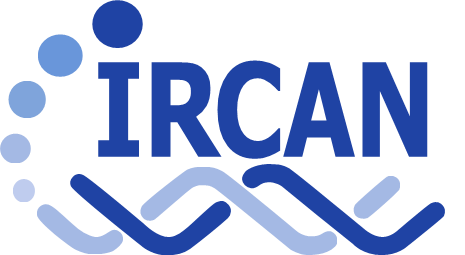
The IRCAN ANTIAGE platform provides access to marine invertebrate research models to study research stress response, regeneration and aging/longevity. Using state-of-the-art aquarium and experimentation systems combined with a longstanding and solid expertise, this platform is the only one of its kind in France located within a Medical School.
All the culture and experimental systems operate in artificial seawater, allowing us to control the physico-chemical parameters and study the exceptional biological properties of a wide range of cnidarian species (e.g. sea anemones and corals) from temperate and tropical waters. Once integrated into the platform, the maintenance of the cnidarians is optimized to ultimately control their sexual life cycle (spawning/in vitro fertilization) or asexual life cycle (budding/fragmentation). In this way, we minimize the impact on natural populations and maintain stable, reproducible conditions for ambitious research projects in the academic and private sectors.
Cnidarians, in particular sea anemones and corals, are unconventional research models that nonetheless possess a variety of biological and physiological characteristics of interest to aging/longevity research: i) an enhanced ability to resist environmental stresses (e.g. ROS, irradiation) that would be harmful to mammalian cells, ii) an extreme regenerative capacity (a complete animal can regenerate missing parts in a matter of days), and iii) their species-specific lifespan, which ranges from a few years to several hundred years.
What’s more, cnidarian genomes have revealed astonishing similarities with those of mammals, enabling important fundamental discoveries relevant to the study of human-related biological processes. Among cnidarians, the sea anemone, Nematostella vectensis is one of the most advanced cnidarian research models, with a variety of molecular and functional genomics tools, including random genome editing techniques (e.g. via Meganuclease), or targeted genome editing, via CrispR/Cas9.
For any inquiry, please contact Aldine AMIEL (aldine.amiel@univ-cotedazur.fr) or Eric RÖTTINGER (eric.rottinger@univ-cotedazur.fr).
Equipment:
The ANTIAGE Facility is equipped with state-of-the-art maintenance and experimentation systems:
- Tecniplast® ZEROLUX. These two semi-automated systems have been developed to rear and maintain the sea anemone Nematostella vectensis. Each system is composed of 90 1.1l tanks with running Nematostella culture medium holding a total of ~10 000 -12 000 adult polyps.
- Tropical (soft coral) aquarium (400L). This custom-made system is separated in two tanks, one that contains the main colonies and one that is used for clonal reproduction of certain species for subsequence experimentation. The main aquarium is connected to a sump (~200L) that contains a protein skimmer, macroalgae and mechanical / biofilters. Light is controlled with state-of the art LEDs that mimic tropical light conditions and physico-chemical parameters measured constantly and supplemented via an automated system.
- Tropical (hard coral) aquarium (200L). This custom-made system that is optimized to rear, clonally reproduce, and maintain hard corals, can be split in 5 separate 40L tanks that share the same seawater. The main aquarium is connected to a sump (~120L) that contains a protein skimmer, macroalgae and mechanical / biofilters. Light is controlled with state-of the art LEDs that mimic tropical light conditions and physico-chemical parameters measured constantly and supplemented via an automated system. All hard corals of the facility hold proper CITES permits.
- Temperate aquarium (200L). This custom-made system that is optimized to rear, clonally reproduce, and maintain temperate photosymbiotic sea anemones or corals, can be split in 5 separate 40L tanks. The main aquarium is connected to a sump (~120L) that contains a protein skimmer, macroalgae and mechanical / biofilters. Light is controlled with state-of the art LEDs that mimic tropical light conditions and physico-chemical parameters measured constantly and supplemented via an automated system.
- Experimental aquarium (200L). This custom-made system has been optimized to perform experiments on larger photosymbiotic cnidarians (corals, sea anemones). It is composed of four individual tanks that share the same seawater and sump however, parameters (ex. Temperature) can be defined for each tank individually. Light is controlled with state-of the art LEDs that can mimic the light conditions specific for the species undergoing experimentation. Physico-chemical parameters are measured constantly and supplemented via an automated system.
- Two stand-alone aquaria (80L each), enable the induction and/or maintenance of bleaching conditions for species of interest. The aquaria are kept dark using black plexiglass, and filtration is done with a mechanical/biological system specific for each tank.
Members:
Head: Aldine AMIEL (IR INSERM) & Eric RÖTTINGER (DR CNRS)
Staff: Renaud REBILLARD (TCS CNRS), Valérie CARLIN (TCS INSERM), Marine DANIEL (IE CNRS)


